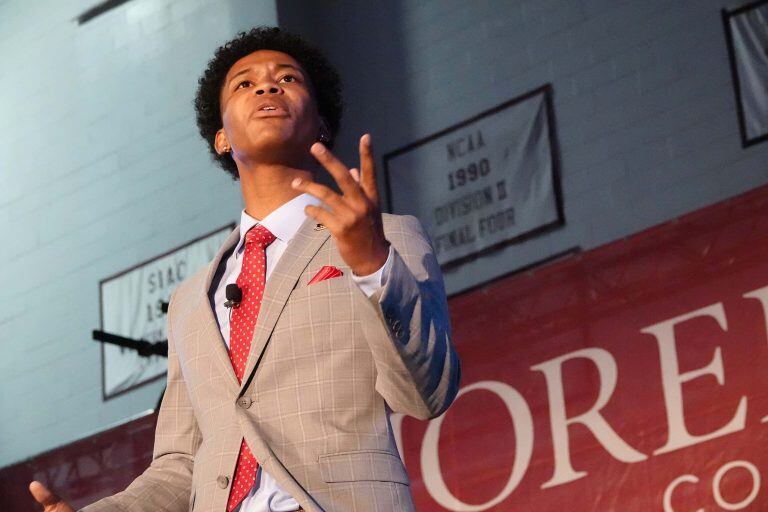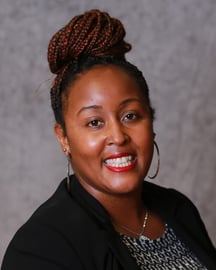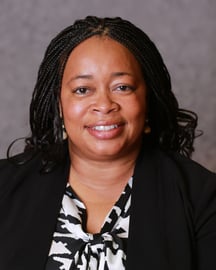- About
- Academics
- Admissions & Aid
- Life
- Research
- News & Events
- Homecoming
Program at a glance
LEARN HOW PEOPLE ARE MOVED AND MOTIVATED
Department
The Communication Studies Program prepares students for careers in public relations, advertising, corporate communications, politics, social activism, business, law, education, government, sociology, medicine, the arts, among others.
Learn More
Bachelor of Arts in Communications Studies
Communication studies examines communication theory, ethics, culture, and strategy.
Learn More
Communications Studies Minor
The minor is designed to enhance overall communication effectiveness. As with the major, the minor studies theoretical foundations of the discipline and promotes the ethical practice of human communication
Learn More
About Communication Studies
-
Overview
COMMUNICATION STUDIES EQUIPS STUDENTS WITH THE KNOWLEDGE, SKILLS, AND ABILITIES TO OBSERVE, INTERPRET, AND EVALUATE COMMUNICATION BEHAVIORS AND PROCESSES.
This course of study supports Morehouse’s mission to produce leaders, as effective leadership skills are dependent upon mastery of effective communication strategies.
Communication is primarily a social process used in personal, social, political, academic, and professional contexts, making the study of communication theory and behavior critical to personal, social, and professional success.
Communication Studies students hone skills in various areas of human communication, critical thinking, and academic, professional, and creative writing, to name a few. Students in this program build a solid foundation for success in graduate and professional education.
-
Outcomes
Outcomes
The Communication Studies Program prepares students for careers in public relations, advertising, corporate communications, politics, social activism, business, law, education, government, sociology, medicine, the arts, among others.
Students in Communication Studies develop their ability to communicate effectively in oral, written, and interpersonal communication. The following outcomes drive academic expectations:
- Apply knowledge of human communication and social and cognitive processes across various contexts and from multiple perspectives, e.g., interpersonal, small group, organizational, intercultural, interracial, and media and mass communication
- Evaluate key theoretical approaches within the interdisciplinary field of communication, e.g., students explain major theoretical frameworks and concepts, and evaluate the strengths and weaknesses of those approaches
- Develop knowledge, skills, and discernment regarding human communication that facilitate their ability to work collaboratively, including communication competencies such as delivering effective presentations, active listening, constructing and delivering sound arguments, and effective conflict management
-
Earn the Major
BACHELOR OF ARTS IN COMMUNICATION STUDIES
MAJOR COURSE OF STUDY REQUIREMENTS
Communication studies examines communication theory, ethics, culture, and strategy. Students must complete 18 hours of core courses and 18 hours of upper-level elective courses in communications.
Students who intend to pursue graduate education are strongly encouraged to complete SOC 302 Social Research Methods.
General Education (Core)
33-48 hoursRefer to the general education requirements for more information.
Communication Studies Major
18 hours- HCOM 253— Public Speaking
- HCOM 353— Interpersonal Communication
- HCOM 360— Interracial Communication
- HCOM 370— Communication Theory
- HCOM 455— Persuasion
- HCOM 460— African American Rhetoric
Approved Electives – 18 hours
Choose six courses from the list below:
- HCOM 351— Professional Communication
- HCOM 352— Communication in Small Groups and Teams
- HCOM 354— Intercultural Communication
- HCOM 355— Argumentation and Debate
- HCOM 356— Debate Practicum
- HCOM 357— Legal Argumentation
- HCOM 375— Communication and Social Justice
- HCOM 450— Organizational Communication
- HCOM 456— Courtroom Communication
- HCOM 457— Mass Media Law
- HCOM 458— Negotiation and Conflict Resolution
- HCOM 487— Special Topics in Communication
- HCOM 490— Directed Study
- HCOM 492— Communication Internship—
- HSOC 302— Research Methods
-
Earn the Minor
MINOR IN COMMUNICATION STUDIES
The minor is designed to enhance overall communication effectiveness. As with the major, the minor studies theoretical foundations of the discipline and promotes the ethical practice of human communication. The minor is open to all students.
The following courses are required:
- HCOM 253— Public Speaking or HCOM 351— Professional Communication
- HCOM 353— Interpersonal Communication
- HCOM 370— Communication Theory
Choose three courses from the list below:
- HCOM 352— Communication in Small Groups and Teams
- HCOM 354— Intercultural Communication
- HCOM 355— Argumentation and Debate
- HCOM 356— Debate Practicum
- HCOM 357— Legal Argumentation
- HCOM 360— Interracial Communication
- HCOM 375— Communication and Social Justice
- HCOM 450— Organizational Communication
- HCOM 455— Persuasion
- HCOM 456— Courtroom Communication
- HCOM 457— Mass Media Law
- HCOM 458— Negotiation and Conflict Resolution
- HCOM 460— African American Rhetoric
- HCOM 487— Special Topics in Communication
- HCOM 490— Directed Study
COMMUNICATION STUDIES EQUIPS STUDENTS WITH THE KNOWLEDGE, SKILLS, AND ABILITIES TO OBSERVE, INTERPRET, AND EVALUATE COMMUNICATION BEHAVIORS AND PROCESSES.
This course of study supports Morehouse’s mission to produce leaders, as effective leadership skills are dependent upon mastery of effective communication strategies.
Communication is primarily a social process used in personal, social, political, academic, and professional contexts, making the study of communication theory and behavior critical to personal, social, and professional success.
Communication Studies students hone skills in various areas of human communication, critical thinking, and academic, professional, and creative writing, to name a few. Students in this program build a solid foundation for success in graduate and professional education.
Outcomes
The Communication Studies Program prepares students for careers in public relations, advertising, corporate communications, politics, social activism, business, law, education, government, sociology, medicine, the arts, among others.
Students in Communication Studies develop their ability to communicate effectively in oral, written, and interpersonal communication. The following outcomes drive academic expectations:
- Apply knowledge of human communication and social and cognitive processes across various contexts and from multiple perspectives, e.g., interpersonal, small group, organizational, intercultural, interracial, and media and mass communication
- Evaluate key theoretical approaches within the interdisciplinary field of communication, e.g., students explain major theoretical frameworks and concepts, and evaluate the strengths and weaknesses of those approaches
- Develop knowledge, skills, and discernment regarding human communication that facilitate their ability to work collaboratively, including communication competencies such as delivering effective presentations, active listening, constructing and delivering sound arguments, and effective conflict management
BACHELOR OF ARTS IN COMMUNICATION STUDIES
MAJOR COURSE OF STUDY REQUIREMENTS
Communication studies examines communication theory, ethics, culture, and strategy. Students must complete 18 hours of core courses and 18 hours of upper-level elective courses in communications.
Students who intend to pursue graduate education are strongly encouraged to complete SOC 302 Social Research Methods.
General Education (Core)
33-48 hours
Refer to the general education requirements for more information.
Communication Studies Major
18 hours
- HCOM 253— Public Speaking
- HCOM 353— Interpersonal Communication
- HCOM 360— Interracial Communication
- HCOM 370— Communication Theory
- HCOM 455— Persuasion
- HCOM 460— African American Rhetoric
Approved Electives – 18 hours
Choose six courses from the list below:
- HCOM 351— Professional Communication
- HCOM 352— Communication in Small Groups and Teams
- HCOM 354— Intercultural Communication
- HCOM 355— Argumentation and Debate
- HCOM 356— Debate Practicum
- HCOM 357— Legal Argumentation
- HCOM 375— Communication and Social Justice
- HCOM 450— Organizational Communication
- HCOM 456— Courtroom Communication
- HCOM 457— Mass Media Law
- HCOM 458— Negotiation and Conflict Resolution
- HCOM 487— Special Topics in Communication
- HCOM 490— Directed Study
- HCOM 492— Communication Internship—
- HSOC 302— Research Methods
MINOR IN COMMUNICATION STUDIES
The minor is designed to enhance overall communication effectiveness. As with the major, the minor studies theoretical foundations of the discipline and promotes the ethical practice of human communication. The minor is open to all students.
The following courses are required:
- HCOM 253— Public Speaking or HCOM 351— Professional Communication
- HCOM 353— Interpersonal Communication
- HCOM 370— Communication Theory
Choose three courses from the list below:
- HCOM 352— Communication in Small Groups and Teams
- HCOM 354— Intercultural Communication
- HCOM 355— Argumentation and Debate
- HCOM 356— Debate Practicum
- HCOM 357— Legal Argumentation
- HCOM 360— Interracial Communication
- HCOM 375— Communication and Social Justice
- HCOM 450— Organizational Communication
- HCOM 455— Persuasion
- HCOM 456— Courtroom Communication
- HCOM 457— Mass Media Law
- HCOM 458— Negotiation and Conflict Resolution
- HCOM 460— African American Rhetoric
- HCOM 487— Special Topics in Communication
- HCOM 490— Directed Study




